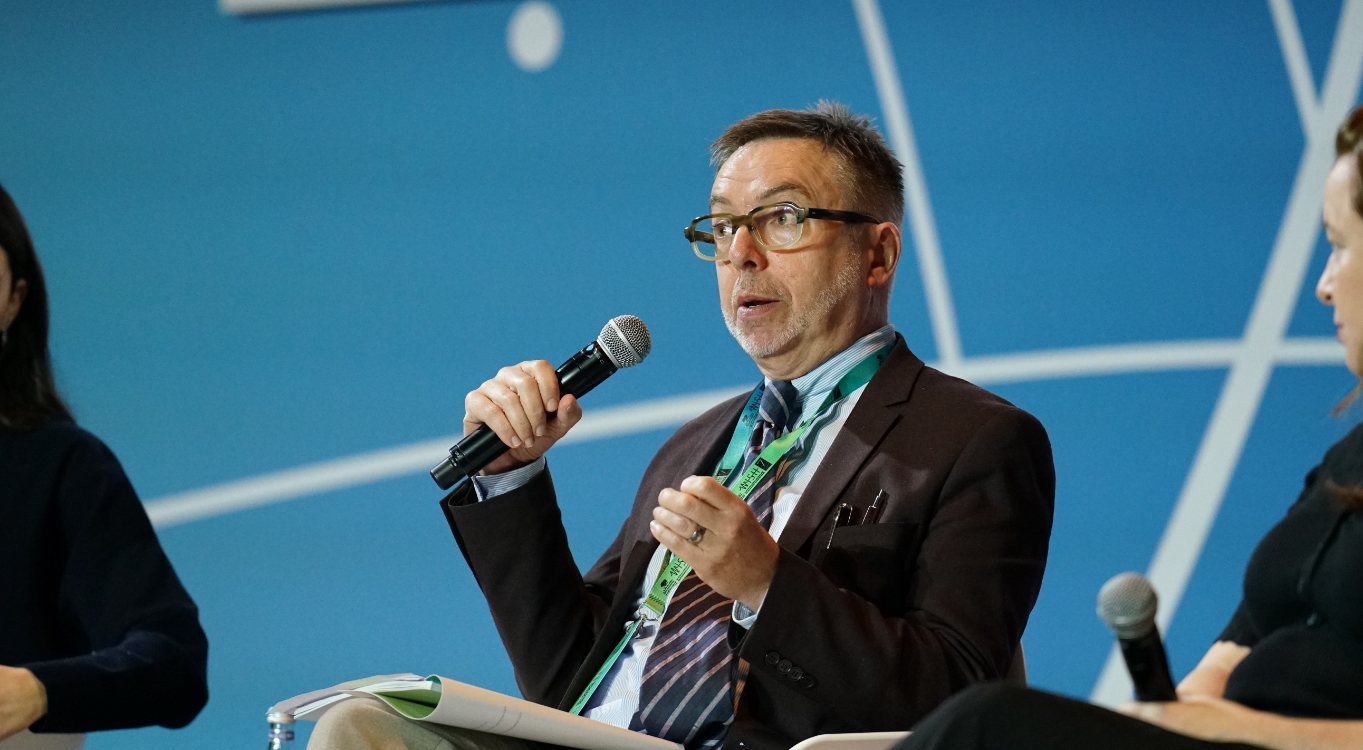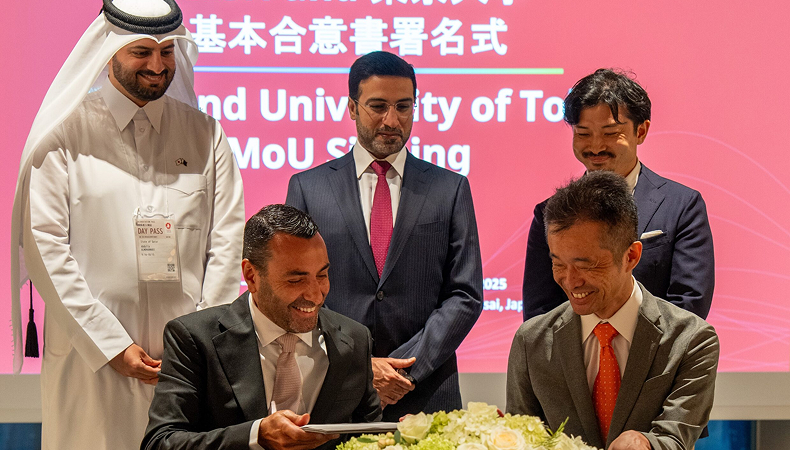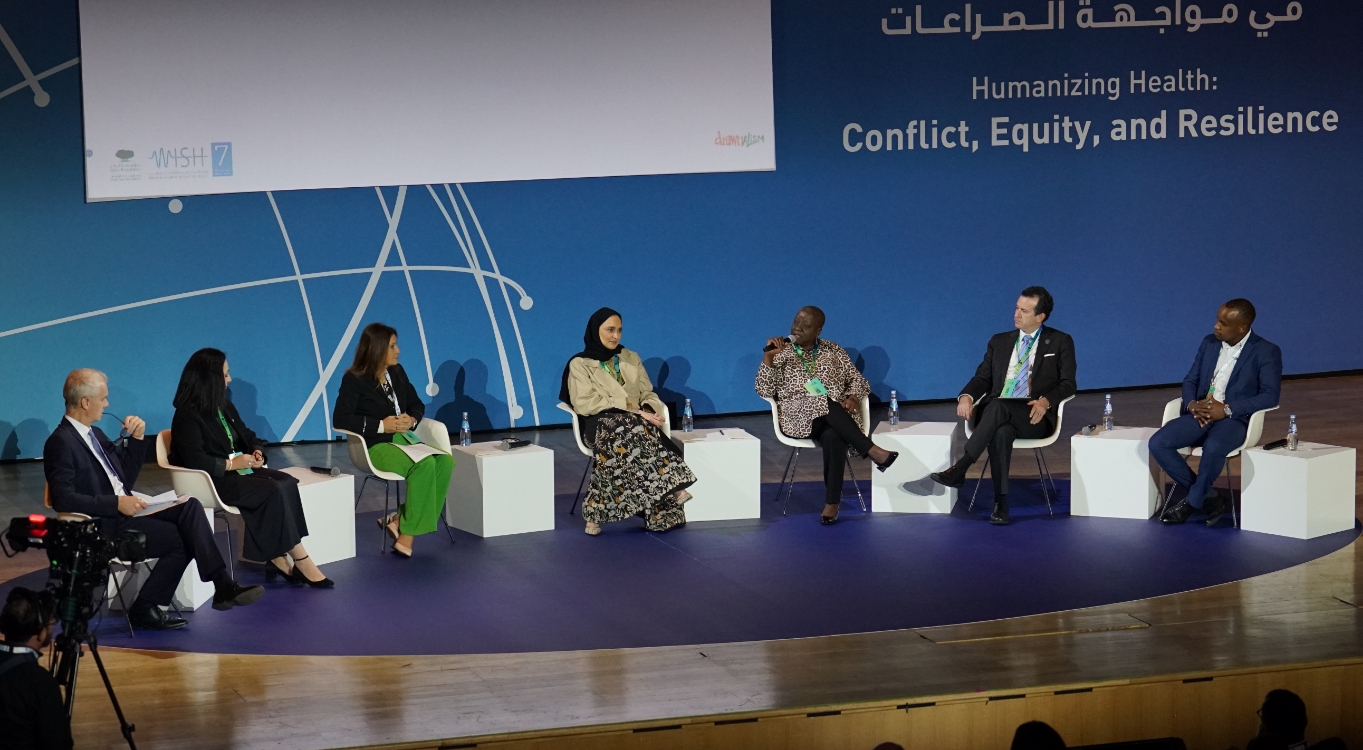Palliative Care needs to be transformed world-wide, say palliative care specialists at QF’s WISH 2024

Professor Richard Harding, Director of the Cicely Saunders Institute of Palliative Care at King’s College London, among other world health leaders, discussed the need to transform Palliative Care.
14 November 2024. Doha, Qatar — The second day of the World Innovation Summit for Health (WISH) – Qatar Foundation’s global healthcare initiative – featured a much-anticipated panel discussion on addressing the urgent need to implement palliative care based on the report, ‘Palliative Care: How can we respond to ten years of limited progress’, released ahead of the summit.
Professor Richard Harding, the Director of the C. Saunders Institute of Palliative Care speaking to a filled auditorium of doctors and health policy specialists said:
“Everybody in this room shares the same challenge: we have patients and family members who face progressive illnesses, who are living with unnecessary physical and psychological suffering. We have a challenge at the health system level…. And we know that there’s a cost, with money being spent on non-beneficial treatments. In high-income countries, the one percent of people who die annually consume 10% of the health budget. So, we’ve got a major problem. The great thing is, we’ve got the solution. It’s palliative care.”
Professor Richard Harding was joined on the panel by Dr. Rachel Clarke, award-winning author and palliative care doctor; Dr. Tala Al Taji, QF Alumni and Palliative care fellow at the University of Rochester; Dr. Asmus Hammerich, the Director for NCD and Mental Health for the Eastern Mediterranean Regional Office of the World Health Organization; Professor Dame Louise Robinson, Academic, General Practitioner (GP), and Professor of Primary Care and Ageing; and Dr. Emmanuel Luyirika, the Executive Director of African Palliative Care Association.
The panel agreed that if we are to tackle this global challenge, we need to provide more community-centered care and reframe our understanding of the term, emphasizing that it is a concept that includes — but is not limited to — end-of-life care.
As populations age and chronic conditions become more common, particularly in transitioning countries, the demand for effective care that alleviates suffering and enhances the quality of life—especially for those nearing the end of life—grows. The need for palliative care is expected to double by 2060.
The panel discussed in detail innovative and cost-effective recommendations to transform essential palliative care in the years to come and identified several key areas to focus on, including: empowering local communities with materials in locally spoken languages, supporting and enabling primary care doctors, increasing appropriate education and training at all levels, enabling research, advocating for better policies in this neglected healthcare area, and increasing literacy and reducing stigma in the general population.
Dr. Tala Al Taji emphasised the importance of understanding the religious and cultural context of patients: “I have found that culture and religion can shape somebody’s willingness to go through treatment or desire to go through treatment. It can shape the decisions that they make at different stages of their illness, and it can even shape their decisions at the end of their lives. I think one of the core principles of palliative care is to preserve patient autonomy, and we cannot preserve patient autonomy without truly understanding the value system of a patient.”
Several of the panelists, including Dr. Clarke, spoke of their work in palliative care as a privilege. Dr. Clarke said: “I strongly believe and see every day at work that there is always potential for goodness and beauty and love and compassion and meaning right up until the end of life, because dying is like living, it is a lived experience, and something we go through with people we love around us, if we’re lucky, and that means there’s always the potential for us as doctors and healthcare workers to make a difference.”
This year, WISH was opened in the presence of Her Highness Sheikha Moza bint Nasser, Chairperson of Qatar Foundation and founder of WISH. The opening ceremony, held at Qatar National Convention Centre in Doha, included speeches from Her Excellency Dr. Hanan Mohamed Al Kuwari, Qatar’s former Minister of Public Health; Lord Darzi of Denham, Executive Chair of WISH; and Christos Christou, President of Médecins Sans Frontières.
The theme of WISH 2024 is ‘Humanizing Health: Conflict, Equity and Resilience’. It aims to highlight the need for innovation in health to support everyone, leaving nobody behind and building resilience, especially among vulnerable societies and in areas of armed conflict.
Ahead of the summit, WISH entered into a strategic partnership with the World Health Organization (WHO), collaborating on the development of a series of evidence-based reports and policy papers, as well as working with the United Nations’ health agency to develop a post-summit implementation strategy.
The summit features more than 200 experts in health speaking about evidence-based ideas and practices in healthcare innovation to address the world’s most urgent global health challenges.
More Press Releases

QF’s WISH and University of Tokyo Sign Landmark Agreement to Advance Global Health Policy at Osaka Expo
Read More
QF’s WISH Announces This Year’s Winning Innovators at 2024 Summit
Read More
World Health Leaders Outline Bold New Strategies and Innovations to Eliminate TB Amongst Refugees and Migrants at QF’s WISH 2024
Read More